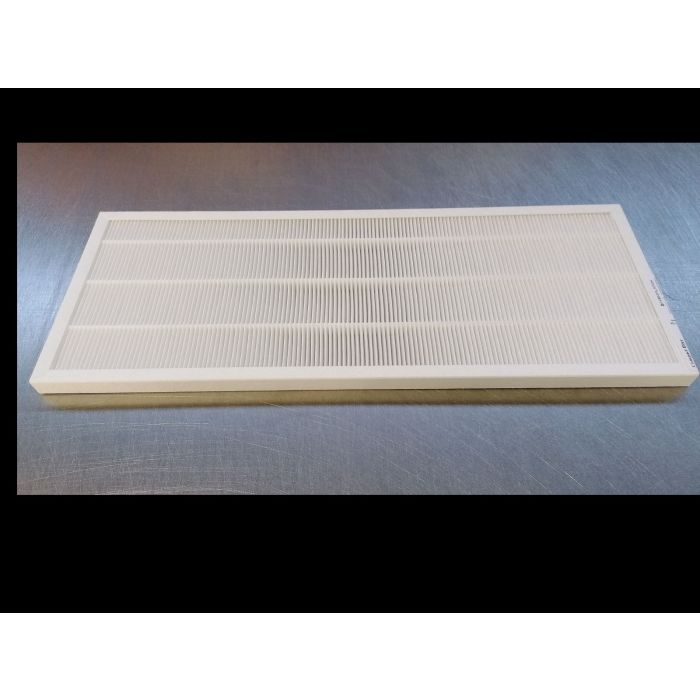Zehnder Comfo Air 350/550 filter Coarse 80 / G4 500x197x17-F
Product Code
1241F1021-I
€28.73
€23.36
Found in:
Whats the difference between different Grades of Filters?
The Filters are the most important and the most overlooked components of a ventilation system. The filters clean the air we breathe and protect the MVHR unit from damage or performance disorientation over time.
- They can filter large parts, bugs, dust, pollen smoke, NO2 or even odours from the incoming air.
- Each filter grade is used for different particle sizes.
- The G3 and G4 filters will filter all large particles, and dust - particles that can be seen by the naked eye. We suggest using them in the exhaust duct to protect the unit or in clean environment and if you do not suffer from no asthma or hay fever.
- The F7 filters has much higher performance, they can filter pollen too. Pollens are so tiny it`s impossible to see them by the naked eye. We suggest using the F7 filters as a supply filter, especially if you have allergies or asthma.
- Active Carbon filters are in a different league they can filter smell, smoke, vehicle fumes, they have limited use in a MVHR unit. If you have a problem with smell or street pollution, fumes we suggest using custom-built carbon filter boxes because carbon filters are manufactured for specific carbon mixes to handle different types of chemical components.
- i-ventilation can set up the carbon mixture in the filter for the type of pollution you have. If you live in a rural area where the issue is more coming from nature, for example farm smells you need a different carbon mix than in a city center, where you have vehicle fumes. For this reason, we developed a filter box installed in line on the supply air, before the MVHR unit with a pre-filter that is customised for your environment.
- If you need more information, please let us know the type of pollution you have, and we will offer you a solution designed for you.
- We suggest replacing your filters every 5-12 months depending on the location you live. To know when you need to replace the filter we suggest to replace the filter, write down the date and check it each 2 months so you will know how often you need to replace your filters. It will depend on the environment you have. New builds would need a filter change within the first year, as the house is still drying out, so the filters will take on more pollutants.
| Filter brand | Zehnder |
|---|
Write Your Own Review

 Safe & Secure Shopping
Safe & Secure Shopping Fast and Reliable Delivery
Fast and Reliable Delivery Excellent Friendly Services
Excellent Friendly Services
